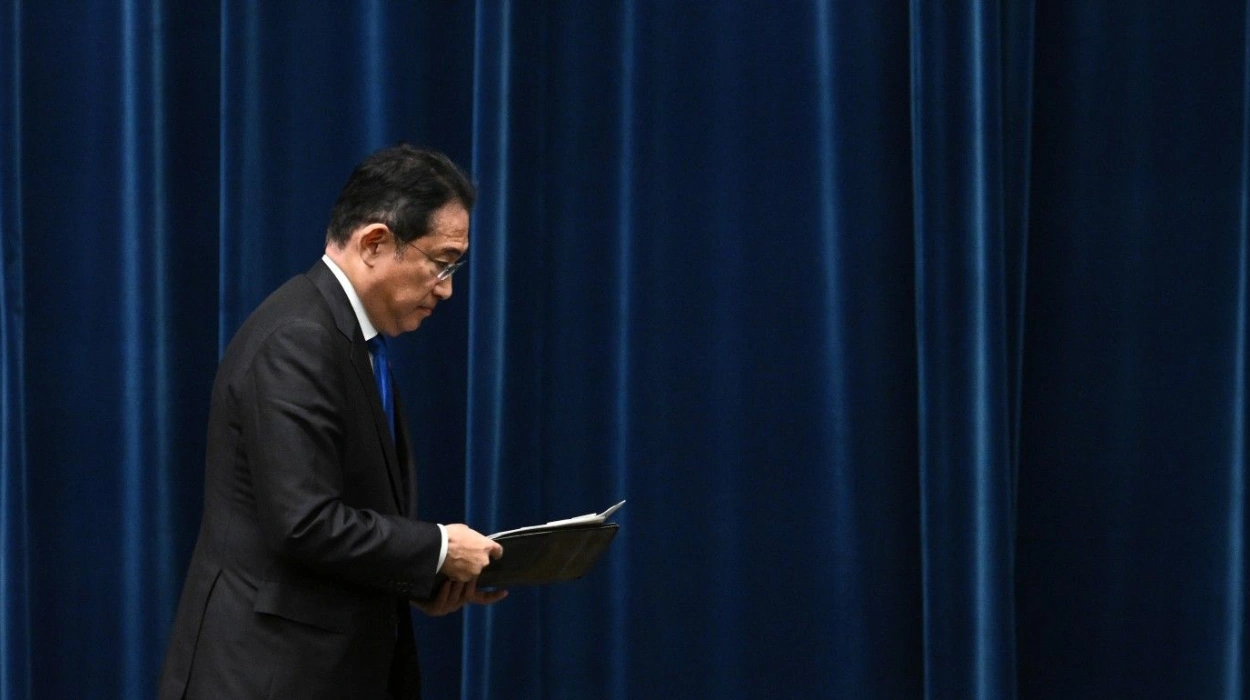Japan(Transatlantic Today)-Japanese Prime Minister Kishida Fumio has declared he will not seek reelection as leader of the Liberal Democratic Party (LDP) and will step down as prime minister when his term ends in September. Kishida, who took office in October 2021, will serve just under three years, making him the third-longest-serving prime minister in Japan since 2000, trailing only Abe Shinzo and Koizumi Junichiro. His tenure is marked by a dichotomy in legacy: a strong international reputation contrasted with low domestic approval ratings.
Kishida’s Global Impact: Strengthening Alliances and Multilateral Engagement
On the international stage, Kishida has proven to be a steady leader for Japan. He has worked diligently to enhance Japan’s security ties and economic partnerships globally while steering clear of the extreme positions that have historically strained relations with neighboring countries. His administration has focused on bolstering the U.S.-Japan alliance, a vital aspect of Japan’s defense strategy. Kishida has advocated for increased defense spending and operational integration between Japanese and U.S. forces, aligning closely with Washington’s policy preferences.
Kishida has demonstrated his commitment to the U.S. alliance through significant actions, such as adhering to U.S. semiconductor export restrictions to China and swiftly implementing sanctions against Russia. A highlight of his tenure was his address to a joint session of the U.S. Congress in April 2024, where he affirmed Japan’s status as America’s “closest ally” and “global partner.”
In addition to U.S. relations, Kishida has actively pursued multilateral and bilateral trade agreements with neighboring countries and other global powers, including Brazil, Saudi Arabia, and ASEAN nations. His recent meeting with Indian Prime Minister Narendra Modi marked a reaffirmation of Japan-India ties in various sectors, celebrating a decade of strategic partnership. Kishida has also championed regional collaborations through initiatives like the Comprehensive and Progressive Agreement for Trans-Pacific Partnership (CPTPP) and the Indo-Pacific Economic Framework for Prosperity (IPEF).
Kishida’s administration has seen a notable warming of relations with South Korea, facilitated by President Yoon Suk-yeol. The two leaders met multiple times to strengthen security and communication frameworks, showcasing a commitment to regional cooperation. Kishida’s leadership at the G7 summit in Hiroshima in 2023 further underscored Japan’s active role in global governance, particularly regarding emerging technologies like artificial intelligence.
Despite identifying China as Japan’s primary security threat, Kishida managed to hold two diplomatic summits with Chinese President Xi Jinping, demonstrating a balanced approach to foreign relations.
Domestic Challenges: Economic Strains and Political Scandals
Domestically, Kishida’s premiership has been plagued by significant challenges that have hindered his popularity. His strengths as a conciliatory leader and a good listener have not translated into effective governance amid economic turmoil and political scandals. Kishida’s inability to implement bold reforms during times of rising inflation and a weakening yen has frustrated the public, who seek more substantial measures to alleviate economic pressures.
His approval rating peaked in May 2022 at 66 percent but began to decline sharply following political scandals. By July 2024, his approval rating had plummeted to 28 percent, with a disapproval rating of 64 percent. Inflation, which had not been a significant concern in decades, added to the pressures on Kishida’s administration. Although he urged employers to raise wages, his administration’s relief measures, such as cash handouts and fuel subsidies, were viewed as insufficient and temporary.
Kishida faced substantial political fallout from the assassination of former Prime Minister Abe in July 2022, which revealed troubling ties between LDP members and a controversial religious cult. Despite taking action against implicated cabinet ministers, public sentiment demanded more decisive action against the organization.
The most severe blow to Kishida’s leadership came from a fundraising scandal within the LDP. Allegations surfaced that significant amounts of money raised through fundraising events had been underreported, leading to accusations of corruption. Kishida’s faction was among those implicated, and while he dissolved his faction in response, the public perceived him as unable to impose necessary reforms within his party.
Despite attempts to pass a new campaign financing law in June 2024, public trust in the LDP had already been severely eroded, and Kishida’s approval ratings failed to recover. A recent poll indicated that 80 percent of respondents were dissatisfied with his handling of the scandal.
Conclusion
Kishida Fumio’s tenure as Prime Minister of Japan will be remembered for its duality: a foreign policy marked by engagement and stability, contrasting sharply with a domestic landscape characterized by economic challenges and political turmoil. As he prepares to step down, his legacy remains a subject of debate, reflecting the complexities of leadership in a rapidly changing global and domestic environment.


























